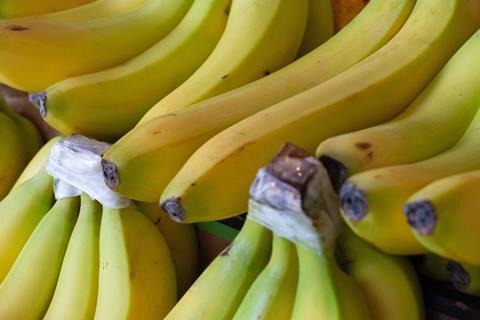World banana trade has skyrocketed in recent years, with an estimated export volume of 21 million metric tons in 2019, according to the Food and Agriculture Organization of the United Nations.

The currently most traded variety is the Cavendish banana, which is susceptible to the devastating fungal disease Fusarium wilt of banana (FWB), caused by a strain called Tropical Race 4 (TR4). Spreading globally since the 1960s, TR4 eventually infiltrated Africa a decade ago - firstly reported in Mozambique on two commercial banana farms in 2013. No evidence of TR4 infestation could be found outside of these farms in 2015 (based on data published only recently), suggesting effective disease containment.
However, a team of researchers led by Anouk van Westerhoven of Wageningen University & Research and Utrecht University confirmed the presence of TR4 beyond the farm boundaries with the initial infestations, indicating its uncontrolled spread in Mozambique.
This alarming result, published in the journal Plant Disease, demonstrates the failure of previous management methods. While banana is the most popular fruit worldwide, it is a particularly important staple and cash crop in developing economies, like that of Mozambique. The uncontained disease spread therefore invokes immediate action to protect banana production and the livelihood of millions in Africa.
Fungal samples
Van Westerhoven and colleagues collected fungal samples from 13 symptomatic banana plants found throughout northern Mozambique, then tested the samples using molecular diagnostics and greenhouse pathogenicity assays.
The samples tested positive for TR4, which prompted the researchers to investigate the genetic variation and potential origin of TR4 in Mozambique. Based on the little amount of genetic variation revealed in this investigation, the researchers speculate that TR4 is spreading clonally.
Corresponding authors Gert H. J. Kema and Michael F. Seidl explain: “Likely the cultivation of Cavendish bananas - a banana variety that stopped the previous epidemic affecting Gros Michel bananas in the 1950s - is now a vehicle for worldwide dissemination, as global banana cultivation is dominated by the highly susceptible Cavendish clones.
“Moreover, there is a lot of trafficking in the banana world. Mobile working crews, international labor hires, and many of these workers and their managers are unaware of the danger of fungal diseases.”
Despite this information, there are still knowledge gaps that hinder successful containment of the unruly fungus.
“Unfortunately, we do not have access to on-farm data, which is essential to monitor the disease,” Kema and Seidl say. The dire situation requires further action, research, and transparent data-sharing to implement new management strategies such as generating and releasing genetically diverse and resistant germplasm for growers in Africa - which will hopefully peel back the ramifications of this complex fungal disease.”







No comments yet